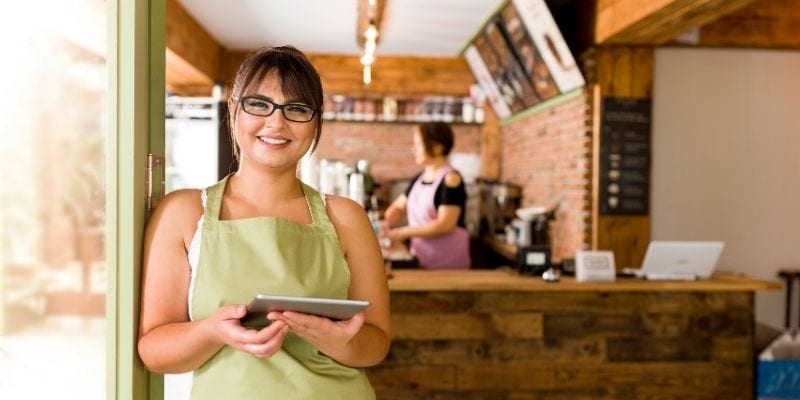Prognosticators, pundits and predictors are not aligned on one thing: when will travel bounce back (and what will that look like)? This question (and many related) are top of mind for those who cover the travel industry. What sectors will lead the way back? Who gets left behind? Is it business travel that starts us back again? Is business travel dead? Will there be a post-quarantine bounce of cabin-fever induced leisure travel? And many (many!) other related questions.
We have our theories, but we suspect one trend might not only lead the way, but be here to stay: local travel. But, it’s not what you think when you hear that word. It’s something that goes by a different name, and something that, if done right, could help jump start the travel economy.
What is local travel? (a traditional definition)
Historically, local travel has been the mindset and focus of travelers to engage with the local culture and activities in addition to (or in lieu of) traditional “touristy” stops.
The folks at Backpack Me offer this traditional definition: “By local travel, I mean travel experiences which engage with local life. Local travel is about experiencing local places, activities and food, and meeting local people, to enrich your understanding of local culture.”

This has meant that travelers would be intentional about doing more than just the tourist destination activities that are often popular. In extreme cases this would even mean skipping popular tourist destinations altogether in lieu of local activities (e.g. a painting class in a village, or a meal in a neighborhood that’s nowhere near the “big spot” everyone might visit at a popular destination.
What will new Local Travel look like? (a post-quarantine definition)
A post quarantine travel world might look radically different than the one we all know so well. In this new world, we suspect that local travel – a new definition of local travel if you will indulge me — will not only lead the way back, but but the norm for a while. At least for leisure travelers. We’ll come back to this in a minute, but first a new definition of an old concept.
The new form of local travel will not be about traveling like a local (when abroad). Rather, it will be about traveling AS a local. As in, venturing out where you live. This idea is not new and it goes by other names. Staycation is an overused (an annoying) word that maybe better describes this concept of local travel. A staycation is when a family, couple, or individual participates in leisure activities that are relatively local, often within driving distance. Many times a staycation can mean not even leaving your house.
The new definition of local travel will become, we predict, the primary form of travel (for a while) as we start emerge from under the thumb of this pandemic and, if down right, could help lead the way for the travel industry.
Why local travel will lead the way back

While we have our opinions on business travel rebounding, we suspect that leisure travel may take a bit longer to fully recover. Here’s why we believe local travel will be the future of travel…at least for a while:
- Quarantines will be lifted at varying times and paces. Some countries may lift quarantines faster than others. Access to popular destinations may be spotty at best.
- People may not feel safe to set out on a major trip. Many people will not feel safe enough to book an African Safari or a trip to Paris. Even if it is safe-ish, many folks may simply not be comfortable enough to make the investment. A local trip to a winery, brewpub, a beach, a museum or even state park might feel a lot safer that flitting across the pond to Krakow.
- Many people will still be experiencing financial strain. The financial devastation of the near total shutdown of many economies is really only getting going. How hard will this cut? The middle class, in particular, will either be unable to invest in big costly trips or conserving cash. [The rich, well, get to do rich stuff…and that means travel. We will set them aside for now]
- Cabin fever will have set in for many. Several months being cooped up in quarantine will either be the death of many marriages or feed a massive pent up need to get out and do something that feels like travel (probably both!).
- People will feel most connected to their local economies. Home is home, right? You probably feel safest there. And likely you feel much more connected to your local community and economy than you do the cafe in London. For those that choose to spend money, it might seem more appropriate to spend it locally.
Fear, Finances and Freedom (either the freedom to finally get out or the lack of freedom to go very far) will underpin the early stages of any travel recovery. The question question is how can global and local companies best position themselves for these early stages.
How can companies (and communities) capitalize on new local travel?
Capitalism rewards the innovative and creative and in the face of a bruising crises some of the best ideas emerge. The kinds of ideas that transform industries or jump start economies. The people who have these ideas are the hustlers, the adaptable, those who can lean in to a situation and see a way forward. This mindset, these individuals and many companies (both local and global) will drive the early stages of this local travel resurgence.
Local tourism boards, chambers of commerce, camp grounds, even local bloggers, are best positioned to drive some of the early stages of what a local travel bounce back might look like. Here’s a few ideas from a local perspective:
- Chambers of commerce, tourism boards and locally focused bloggers can support this by highlighting the unique characteristics of their locales FOR locals. To an extent, these entities already do this, although in many cases the focus is less on local residents and more regional or national vacationers. They are convincing out of region people to come visit them. They should turn their efforts even more local than before. Why should I, as a local resident who lives down the street from the Winery come spend the night at your chalet?
- BnBs, local and regional chain hotels, campgrounds, trails, etc, should lean into this by creating marketing campaigns targeted at locals, not just visitors from out of town. “Stay local, feel global” (or whatever)
- Local businesses could create rewards programs for locals only, expand local discount programs, and develop their own marketing campaigns that highlight the staycation / travel local themes. Help people see that this is travel and not just a date night or a night out and then incentivize frequency.
- Campaigns should humanize the owners and local-ness of these destinations. It’s not just the “Winery.” It’s the winery owned by Jim and Sally, your neighbors.” Evoke empathy and local connectivity.
Global companies can get into this too. The local Hampton Inn can highlight that the manager is Fran, who lives in their community. And that Fran’s job depends on people staying at her hotel. That annoying placard stand in every hotel lobby that shows you where the dinosaur museum is could be made more intentional. Instead of being that thing you pass by as you exit the elevator, the hotel could curate activities based on the local preferences, set up more comprehensive shuttle services for local guests (we will pick you up from your home) and help lead / create local staycation packages.
The local Enterprise Rental Car could create ride share options for locals (designated driver services, perhaps), or deals on renting that Camaro for the weekend. And so on. You get it…
If Global companies can think local they could get it on this. If they can be adaptable to local conditions by empowering local operators they could get share in, and use their brand power to drive some of this activity.
State and federal governments could support this as well. Maybe eliminate resort fees or hotel taxes (which are for out of towners who don’t normally pay for emergency services) for local guests to drive costs down further. Grants or loans targeting local tourism boards could spur investments in local attractions creating more appeal for locals. And so on.
This isn’t easy…or guaranteed
A local first approach doesn’t guarantee success. What we’ve experienced is radical. The repercussions are not even visible yet, in many cases. There are a lot of reasons why this won’t work, but we think there’s some merit here. Something worth considering.
We think local travel is likely the way back from this near total travel shutdown. But, what are your thoughts? How might individual, companies big and small, and the economy as as whole lean into local travel? Drop us a comment, below or tweet us @CBoardingGroup.
Thanks & Stay Safe
Like many of us, you are probably struggling to find your new normal. Perhaps you’ve done that and are simply bored. We’ve got your back. Here’s a ton of recent content that revolves around what’s facing us today, including working from home ideas, what to watch, things to read, and how to avoid boredom. Enjoy.
Affiliate Disclosure: As an Amazon Associate I earn from qualifying purchases. I may also earn commissions from other affiliate programs as applicable.


1 comment
Yes, due to the current crisis we will travel only in our near. I hope the crisis will be over very soon.
Thanks for the article, it’s very informative.